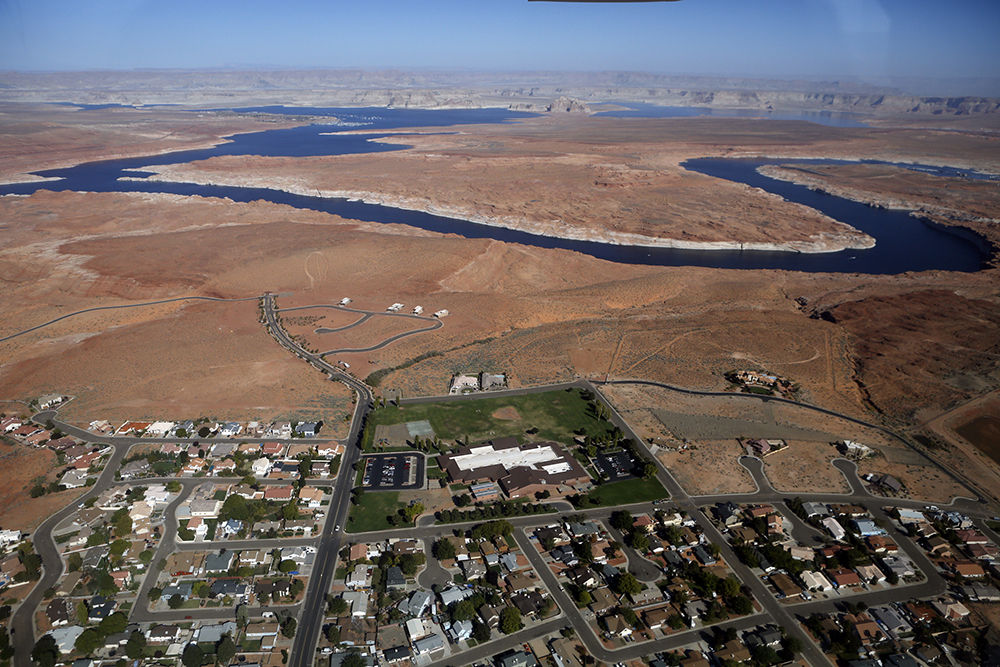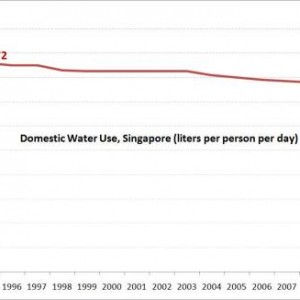First Inland Desalination Plant Opens in the UK
Located in East London’s Beckton, the Thames Water desalination plant is slated to be used during times of drought. But some local politicians argue that the facility is a waste of energy.

The UK’s first inland desalination plant opened yesterday in London to provide drinking water to one million of the city’s residents during times of drought, the Guardian reports. The $US 390 million large-scale facility, sponsored by Thames Gateway Water Treatment Works, was constructed in East London’s Beckton and has the capacity to convert 150 millions of liters of water per day for drinking.
It is the world’s first four-stage reverse osmosis process utility and can yield 85 percent of source water as drinking water, according to WaterWorld. Most other desalination facilities utilize one to two stages and have a yield of 50 percent.
Martin Baggs, chief executive of Thames Water, says that expanding the water supply via the plant is necessary step for the area as it copes with climate change.
“Existing resources — from non-tidal rivers and groundwater — simply aren’t enough to match predicted demand in London,” Baggs told the BBC.
But opponents of the plant, like former London Mayor Ken Livingstone, claim the utility is a “waste of money,” and doesn’t address the city’s real water issues: leaky infrastructure and excess consumption.
Other politicians have come out in agreement with Livingstone.
“The desalination plant is a sticking plaster solution to London’s water shortage problem, which will take the pressure off Thames Water to reduce the capital’s appalling leakage rates,” Darren Johnson, the deputy chair of the environment committee for the London Assembly, told the BBC.
Johnson, like many officials and water experts from around the world, has also expressed concern regarding the high levels of energy desalination plants need, according to the AFP.
In an effort to make the plant more energy efficient, Thames Water says it will use renewable biofuels to run the plant and only operate the facility during times of drought. But drought could become more frequent and prolonged in northwest England by the end of June, one Environment Agency spokesperson told the Guardian. Lower than average rainfall and higher temperatures from climate change have been fueling the dry spells.
Meanwhile recent news reports have indicated that neighboring Scotland was investigating the possibility of exporting millions of gallons of water to England in the event of severe drought.
And although some local politicians say widespread water shortage in England is unlikely, Thames’ project manager Steve Baldwin insists that that the existence of a desalination plant will still ease potential water woes.
“When the next drought arrives, it will ensure that we will always be prepared,” Baldwin told AFP.
Sources: The Guardian, the , BBC and WaterWorld.AFP









Leave a Reply
Want to join the discussion?Feel free to contribute!